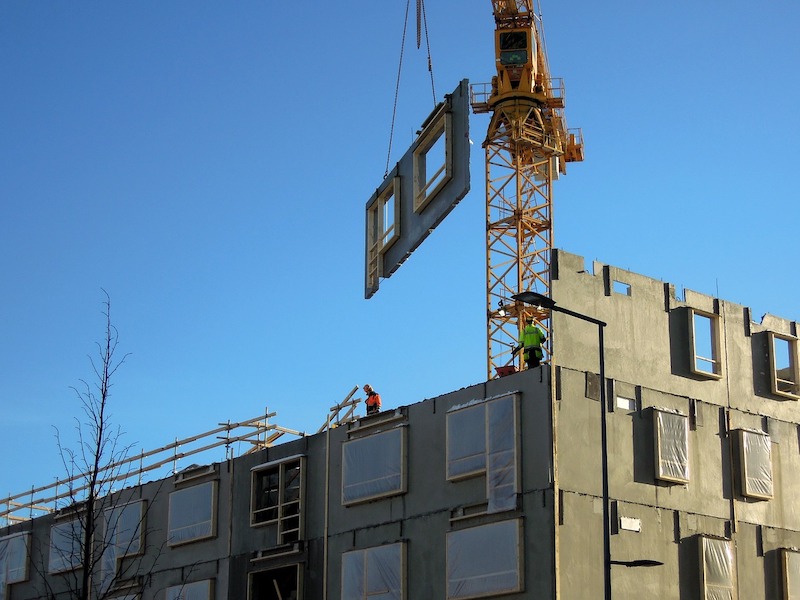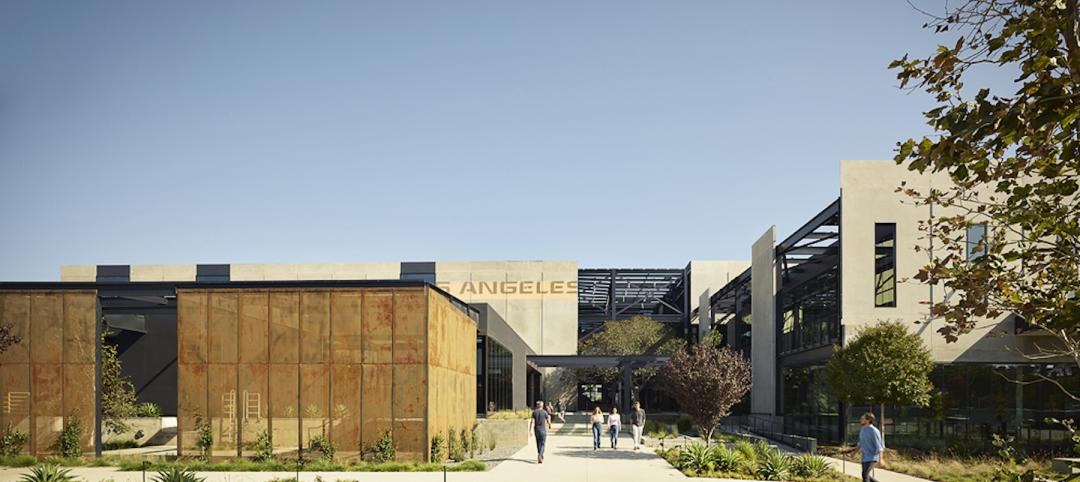The complete findings from our inaugural Giants 300 Technology and Innovation Study will be available soon at BDCnetwork.com/2019TechSurvey. This 12-question survey was emailed to all 486 firms that participated in BD+C’s 2019 Giants 300 Report; 130 firms completed the tech survey, for a participation rate of 26.7%.
The objective of the study was to gain a deeper understanding of the state of AEC technology adoption and innovation initiatives at the nation’s largest architecture, engineering, and construction firms. There are dozens of takeaways from this study, including which tech tools are being used most frequently, and which tools offer the best ROI (see our recap on page 40).
One takeaway that stood out for me was the astonishingly high adoption rate of offsite construction among the general contractors and construction management firms. Of the 35 GCs and CMs that participated in the survey, 25 firms (71.4%) indicated that they use offsite/prefab construction on projects, and, incredibly, nearly half (45.7%, or 16 firms) use offsite construction on “all” or “many” projects.
Of the 10 firms that currently are not implementing offsite construction on projects, three firms are pilot-testing offsite processes and four are considering the approach for future application. That leaves just three firms (8.5%) that indicated they have zero interest in offsite construction—which means we’re looking at an adoption rate of more than 90% among the nation’s largest GCs and CMs.
When asked to pinpoint the single most significant AEC technology innovation their firm has initiated in the past year with positive results, DPR Construction’s National Director of Innovation, Kaushal Diwan, cited the use of multitrade/multiscope prefabrication through its strategic partnership with Phoenix-based prefab provider Digital Building Components: “The ability to take more complex work offsite while other work proceeds, then bring ready-to-install elements to the site is a significant advance in the use of prefabrication. With the existing labor shortage and desire to still have speed-to-market, we think we’re only beginning to see the possibilities.”
Speed, quality, advanced coordination, and schedule gains are commonly cited as benefits of offsite construction. But what about hard-dollar ROI?
“Our current metrics savings show that prefabricating with Digital Building Components offsite saves 10–20% on overall cost,” said Diwan. “It can save time by improving installation efficiency by 20–30%, and it increases quality by reducing rework to less than 1%.”
The caveat, added Diwan, is that these results “are only possible through deep adoption and integration with virtual design and construction and robotics technology, which Digital Building Components uses.”
Related Stories
Codes and Standards | Jun 8, 2022
Florida Legislature passes bill requiring stricter condominium inspection
The Florida Legislature recently passed a bill to beef up building inspection requirements for many of the state’s condominiums.
Office Buildings | Jun 8, 2022
Former L.A. Times newsroom/printing plant remade into office campus
Phase 1 of The Press, an adaptive reuse project that is converting an old Los Angeles Times facility into a modern office campus, was recently completed in Costa Mesa, Calif.
Codes and Standards | Jun 7, 2022
FEMA launches National Initiative to Advance Building Codes
The U.S. Federal Emergency Management Agency (FEMA) has launched a new government-wide effort to boost national resiliency and reduce energy costs.
Plumbing | Jun 7, 2022
Sloan launches ‘Sinks Beyond the Restroom’ innovation
Sloan, the world’s leading manufacturer of commercial plumbing systems, has launched its ‘Sinks Beyond the Restroom’ concept.
Building Team | Jun 7, 2022
Announcing construction inclusion week 2022: October 17-21, 2022
Save the date for Construction Inclusion Week 2022: October 17-21, 2022.
University Buildings | Jun 7, 2022
Newfoundland university STEM building emulates natural elements, local traditions
Memorial University of Newfoundland (MUN) recently opened a new building that will provide interdisciplinary learning and research space for Faculties of Science and Engineering.
Codes and Standards | Jun 2, 2022
Guide helps schools find funding for buildings from federal, state government
New Buildings Institute (NBI) recently released a guide to help schools identify funding programs for facilities improvements available from federal and state government programs.
Airports | Jun 2, 2022
SOM-designed International Arrival Facility at Seattle’s Sea–Tac airport features the world’s largest aerial walkway
The Skidmore, Owings & Merrill (SOM)-designed International Arrivals Facility (IAF) at Seattle-Tacoma International Airport has opened, replacing a 50-year-old arrival facility.
Women in Design+Construction | Jun 2, 2022
Women in Architecture: How HMC Pioneers Gender Equality
A survey by the Association of Collegiate Schools of Architecture (ACSA) shows that while women account for nearly half of graduates from architecture programs, they only make up about 15 percent of licensed architects.
Codes and Standards | Jun 2, 2022
New design guide for hybrid steel-mass timber frames released
The American Institute of Steel Construction (AISC) has released the first-ever set of U.S. recommendations for hybrid steel frames with mass timber floors, according to a news release.

















